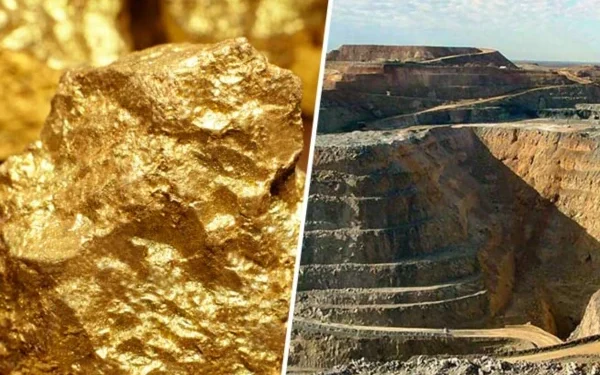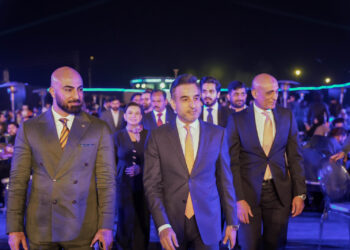Introduction: A Historic Milestone for Pakistan’s Mining Sector
Islamabad – The Reko Diq Mining Company (RDMC) is on the brink of achieving financial close for one of the world’s most anticipated mining projects. With investment assurances amounting to nearly $6 billion, the project has successfully secured almost double its initial financial requirements. Among these commitments is a $500 million guarantee from the United States, highlighting the global strategic importance of the venture.
In addition, the World Bank Group and the Asian Development Bank (ADB) have jointly approved a $1.05 billion financing package for the Reko Diq project, further strengthening investor confidence. ADB has not only committed a $300 million loan but also extended a partial loan guarantee of $110 million to the Government of Balochistan, ensuring that Pakistan’s largest province benefits directly from this game-changing initiative.
Background: The Importance of the Reko Diq Project
Reko Diq, located in Chagai District, Balochistan, is one of the world’s largest untapped reserves of copper and gold. The project, jointly developed by Barrick Gold Corporation, the Government of Pakistan, and the Government of Balochistan, is expected to redefine the country’s mineral economy.
Once operational, the Reko Diq mine will become the fifth-largest copper mine in the world, producing an estimated 800,000 tonnes of copper concentrate annually. This production level places Pakistan among the top mineral-exporting countries and will significantly reduce the country’s reliance on external financing.
The project is especially crucial for Pakistan’s economic diversification. Traditionally dependent on textiles and agriculture, the country is now stepping into the critical minerals sector, which is essential for global energy transitions, renewable technologies, and digital advancements.
Financial Commitments and Global Participation
The financing structure of the Reko Diq project demonstrates unprecedented international confidence in Pakistan’s mining sector:
- Asian Development Bank (ADB): $300 million loan + $110 million loan guarantee for Balochistan.
- World Bank Group: Co-financing as part of the $1.05 billion package.
- United States: Minimum guarantee of $500 million.
- Japanese Export-Import Bank: $500 million pledge.
- Australian Export Finance: $250 million pledge.
- European and North American Institutions: Financial commitments from Germany, Sweden, Korea, Finland, and Canada.
This broad participation highlights the geostrategic importance of Reko Diq, as global powers recognize the value of securing access to critical minerals like copper, essential for renewable energy infrastructure, electric vehicles, and advanced electronics.
Rising Project Costs and Government Responsibilities
While the project was initially estimated at a much lower cost, the first phase will now require $6.7 billion, which is 58% higher than earlier projections. The escalation is attributed to:
- Inflationary pressures in the global commodities market.
- Expanded production requirements due to growing global demand.
- Scaling up of infrastructure to meet world-class mining standards.
The financial burden will be shared as follows:
- Federal Government of Pakistan: $1.9 billion for its 25% equity stake.
- Government of Balochistan: $1.1 billion for its 25% equity stake (partially supported by ADB guarantees).
- Barrick Gold Corporation: Responsible for the remaining 50% of costs.
This shared structure ensures that both the federal and provincial governments retain direct ownership of the project, making it a rare example where Pakistan not only benefits from royalties but also holds equity participation.
Statements from Key Stakeholders
Asian Development Bank
Masato Kanda, President of ADB, emphasized:
“The Reko Diq project will not only meet global demand for essential minerals but will also be a game-changer for Pakistan’s economy, generating employment, regional development, and social welfare. This investment represents our commitment to sustainable development in Asia and the Pacific.”
Government of Pakistan
Federal officials highlighted that the project will help bridge Pakistan’s trade deficit, generate thousands of direct and indirect jobs, and accelerate infrastructure development in Balochistan, a province long deprived of its fair share of national wealth.
Barrick Gold Corporation
As the lead developer, Barrick Gold expressed optimism about timely progress:
“Reko Diq is set to become a flagship project for Barrick, as well as for Pakistan, positioning the country at the heart of the global minerals supply chain.”
Expected Economic Benefits for Pakistan
The Reko Diq project is projected to deliver wide-ranging economic dividends:
- Employment Generation:
- Thousands of jobs during the construction phase.
- Sustainable employment opportunities in mining, logistics, processing, and services.
- Boost to Exports:
- Copper concentrate exports will diversify Pakistan’s export basket.
- Long-term foreign exchange earnings will strengthen Pakistan’s reserves.
- Regional Development in Balochistan:
- Investment in roads, water supply, housing, and healthcare.
- Social welfare programs directly benefiting local communities.
- Technology Transfer:
- Training programs for Pakistani engineers and geologists.
- Advanced mining and environmental management practices introduced.
- Global Supply Chain Integration:
- By supplying copper to global markets, Pakistan becomes part of the renewable energy transition supply chain, crucial for solar, wind, and EV industries.
Strategic Significance: Copper and Critical Minerals
Copper is known as the “metal of electrification”, indispensable in renewable energy systems, electric vehicles, and digital technology. With the world shifting towards carbon neutrality, demand for copper is projected to rise by over 50% by 2040.
By 2028, when Reko Diq starts production, Pakistan will be well-positioned to take advantage of this demand surge. The project aligns with ADB’s Critical Minerals to Manufacturing Value Chains initiative, which supports developing economies in harnessing their natural resources for global manufacturing supply chains.
Challenges and Risks
While the project promises immense rewards, challenges remain:
- Political Stability: The success of Reko Diq depends on continuity of policy and investor confidence.
- Security in Balochistan: Ensuring the safety of workers and infrastructure is critical in a region affected by insurgency.
- Environmental Concerns: Mining projects face scrutiny for their ecological impact, requiring world-class safeguards.
- Revenue Management: Transparent allocation of revenues between federal and provincial governments is essential to avoid disputes.
Timeline and Future Outlook
- Construction Phase: Began in 2025.
- Operational Start: Expected by 2028.
- Projected Lifespan: Several decades of production, ensuring long-term revenue streams.
- Output: Approximately 800,000 tonnes of copper concentrate annually in phase one, with potential expansions in later phases.
The project is set to become Pakistan’s largest foreign direct investment (FDI) initiative, symbolizing a turning point in its economic development strategy.
Conclusion: A Defining Moment for Pakistan
The Reko Diq project represents more than just a mining operation—it is a symbol of Pakistan’s integration into the global critical minerals supply chain. With nearly $6 billion in confirmed investments, international backing from the World Bank, ADB, and multiple countries, and direct government ownership, the project is poised to transform Pakistan’s economic landscape.
If managed with transparency, efficiency, and environmental responsibility, Reko Diq can become the cornerstone of Pakistan’s resource-driven growth, turning the country into a significant player in the global energy transition era.

























